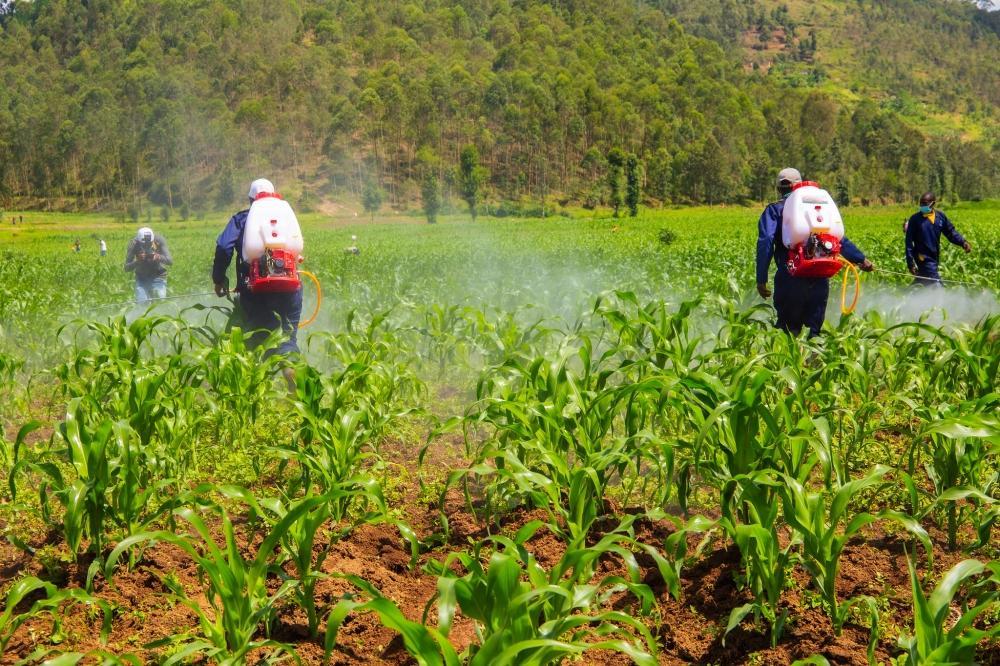Africa-Press – Rwanda. Farmers of staple crops, such as rice, potatoes and maize, have outlined a series of pressing challenges, ranging from outdated seed varieties to rising costs of inputs, which they say are limiting productivity and competitiveness.
The concerns were raised during a multi-stakeholder dialogue held in Kigali on June 12, bringing together policymakers, farmers, agro-industrial actors, and civil society organisations.
Here are the seven issues farmers say need urgent attention.
1. Outdated seed varieties are still in use
Farmers say they still rely on old crop varieties, especially in Irish potato farming.
“For example, the Kinigi potato variety is around 30 years old and no longer yields sufficiently,” said Félix Turimumahoro, President of the Irish Potato Farmers Association of Rwanda (IABIRWA).
Even if Rwanda Agriculture and Animal Resources Development Board (RAB) introduces new varieties, farmers say the seeds often reach them too late.
“Seed multipliers are tasked with growing and multiplying the seeds. But one of the conditions for getting the sedds is owning at least five hectares of land. These multipliers end up farming on their own land and only release the seeds to smallholder farmers when the variety is already past its peak productivity,” Turimumahoro explained.
2. High cost of pesticides and fungicides
Another major concern is the soaring cost of essential inputs such as fungicides and pesticides, which are not subsidised.
“A 25kg pack of Dithane fungicide cost Rwf90,000 in 2024. Now it’s Rwf170,000. Thiodan Sprimatline was Rwf50,000, and now it’s Rwf80,000,” Turimumahoro said.
He urged the government to subsidise these inputs just as it did with fertilisers, in order to stabilise prices and prevent dealers from charging arbitrary prices.
3. Transport remains a barrier
Transportation of produce from remote farms to markets is another issue highlighted by the farmers’ association.
“In some of locations, we pay up to Rwf30 per kilogram just to transport crops to the main road,” Turimumahoro said, calling for more road infrastructure.
4. Market access and price setting are still evolving
Jean Damascène Rwamwaga, President of the Rwanda Rice Farmers Association (FICORIRWA), said farmers have recently started setting their prices, a shift from previous years when the Ministry of Agriculture and Animal Resources determined crop prices. However, challenges remain.
“Our produce often fails to compete with imports because local production costs are much higher,” he noted.
5. Traditional farming still common
Despite efforts to modernise agriculture, the majority of farmers continue to rely on rudimentary tools and practices.
“Some farmers are still using traditional tools to sort rice, and we even have to chase away birds ourselves to protect the harvest, while technology could be used,” Rwamwaga said.
6. Delayed access to organic fertilisers
Jean-Claude Ngendandumwe, Executive Secretary of Conseil de Concertation des Organisations d’Appui aux Initiatives de Base (CCOAIB), a consortium of development NGOs, said that a recent study on the commercialisation of intensified crops the organisation found the same challenges as a key concern.
“Farmers receive organic fertilisers too late, often after the critical planting window has passed,” he said.
He added that certain crops, such as potatoes and maize, require specific soil preparation skills and guided fertiliser usage, both of which are currently lacking.
7. Climate change and limited irrigation
Farmers are also grappling with shifting weather patterns, which have disrupted the rainy and dry seasons.
“While there are irrigation efforts in wetlands, more investment is needed in hillside areas that are often left out,” Ngendandumwe said.
The government’s Crop Intensification Program (CIP) focuses on land consolidation, mono-cropping, and commercialization of six priority crops, which are maize, wheat, rice, Irish potato, beans, and cassava.
The project, which includes fertilizer imports, is set to receive over Rwf617 billion by 2029 under the second National Strategy for Transformation (NST2). In the 2025-2026 fiscal year alone, more than Rwf55 billion has been allocated to the programme, according to the new national budget.
For More News And Analysis About Rwanda Follow Africa-Press






